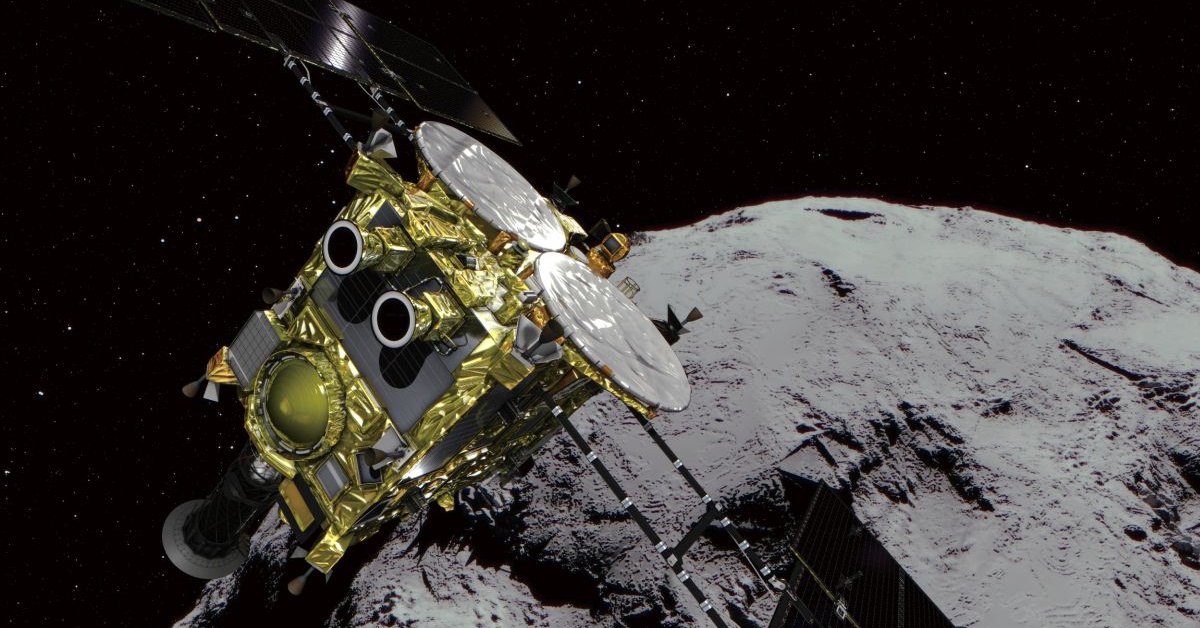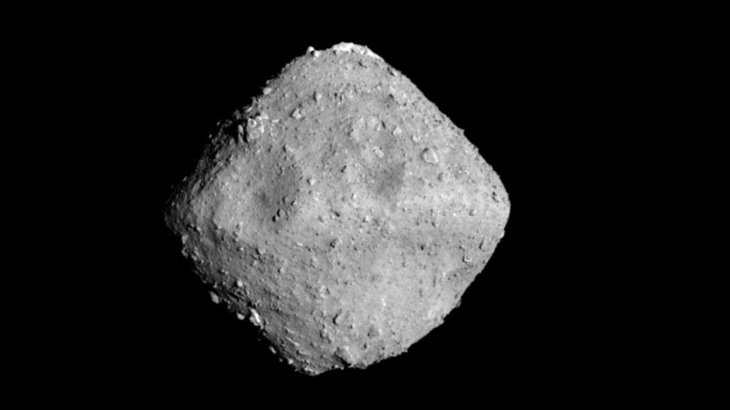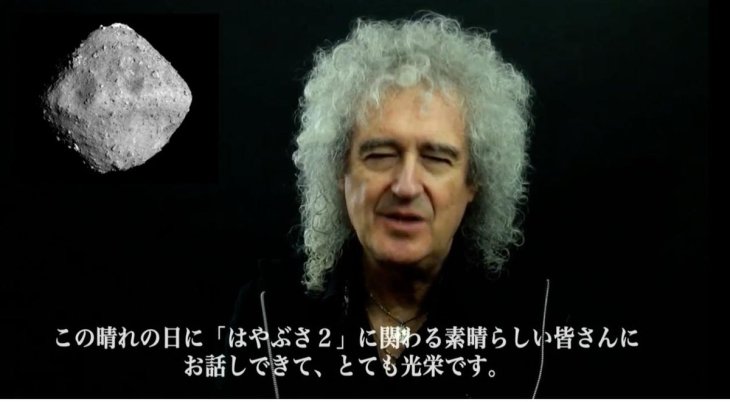Hayabusa2 Successfully Touches Down On Ryugu Asteroid
Arnav Dhar - Feb 25, 2019

Japan's Hayabusa2 probe successfully landed on a potentially hazardous asteroid called Ryugu.
- Japan Marks 10 Years Since The Fukushima Disaster Killing 18,500 People
- Japan Has New Minister Of Loneliness To Deal With Suicide Rates
- You Can Work From Anywhere With These Phone Booth Office Spaces
Ryugu, a potentially hazardous, has been targeted by Japan's Space Agency JAXA for nearly a year. And it has just got shot recently.

Their spacecraft Hayabusa2 touched down on the mentioned asteroid successfully at about 3 p.m Pacific Time on February 22, satisfying all the research team.
The probe was intended to descend on the rough space rock and gather its sample from the asteroid's surface in only a few minutes. In order to accomplish this task, Hayabusa2 lands on a position right over the surface and shoot a 1000-kph tantalum shot at Ryugu to lift up debris and dust. The researchers had already recreated this procedure on Earth and hoped that it would also happen even at 289 million kilometers away.
The landing site of Hayabusa2 on Ryugu was near its equator, right on the east of the crater Brabo, a name inspired by a Dutch folk tale. Ryugu is also the name of the palace of a dragon in Japanese mythology.

Brian May, a legendary rock star, guitarist, and astronomer, who was featured on the stream to send his best wish to the team.
He said:

At 3:08 p.m Pacific Time, it is confirmed by JAXA that Hayabusa2 had started to ascend from Ryugu's surface.
Junichiro Kawaguchi, manager of the project, said not long after the landing:

However, they haven't known yet what the probe managed to collect as there were no sensors or detectors on Hayabusa2 to figure out. So they will just have to wait.
Japan is now the only country to successfully collect asteroids' samples after its Hayabusa1 came back from asteroid Itokawa in 2010. While it did effectively gather Itokawa's samples, the projectiles didn't successfully fire. Talking after the present landing, Kawaguchi viewed the Hayabusa2 success as "vengeance" for the previous mission.
Thanks to its 3 bullets, Hayabusa2 has more chances to get more samples from Ryugu and it will come back to Earth next year.
NASA is having a similar task with OSIRIS-REx currently orbiting the asteroid Bennu. It is hoped to come back to Earth with an example from that space rock in 4 years and NASA will then share those findings to its Japanese partners.
Featured Stories

Features - Jan 29, 2026
Permanently Deleting Your Instagram Account: A Complete Step-by-Step Tutorial

Features - Jul 01, 2025
What Are The Fastest Passenger Vehicles Ever Created?

Features - Jun 25, 2025
Japan Hydrogen Breakthrough: Scientists Crack the Clean Energy Code with...

ICT News - Jun 25, 2025
AI Intimidation Tactics: CEOs Turn Flawed Technology Into Employee Fear Machine

Review - Jun 25, 2025
Windows 11 Problems: Is Microsoft's "Best" OS Actually Getting Worse?

Features - Jun 22, 2025
Telegram Founder Pavel Durov Plans to Split $14 Billion Fortune Among 106 Children

ICT News - Jun 22, 2025
Neuralink Telepathy Chip Enables Quadriplegic Rob Greiner to Control Games with...

Features - Jun 21, 2025
This Over $100 Bottle Has Nothing But Fresh Air Inside

Features - Jun 18, 2025
Best Mobile VPN Apps for Gaming 2025: Complete Guide

Features - Jun 18, 2025
A Math Formula Tells Us How Long Everything Will Live
Read more

ICT News- Feb 10, 2026
Discord's Teen Safety Sham: Why This Data Leak Magnet Isn't Worth Your Trust Anymore
Cancel your Nitro, export your data, and move on before the next leak hits. Your personal information deserves better.

ICT News- Feb 08, 2026
Is Elon Musk on the Path to Becoming the World's First Trillionaire?
For now, the world watches as Musk's empire continues to expand into uncharted territory.

ICT News- Feb 07, 2026
NVIDIA's Gaming GPU Drought: No New Releases in 2026 as AI Takes Priority
While NVIDIA's dominance in AI secures its financial future, the gaming community may feel left behind in this evolving landscape.

ICT News- Feb 09, 2026
PS6 Rumors: Game-Changing Specs Poised to Transform Console Play
Keep an eye out for Sony's official reveals as we near what's ahead.
Comments
Sort by Newest | Popular